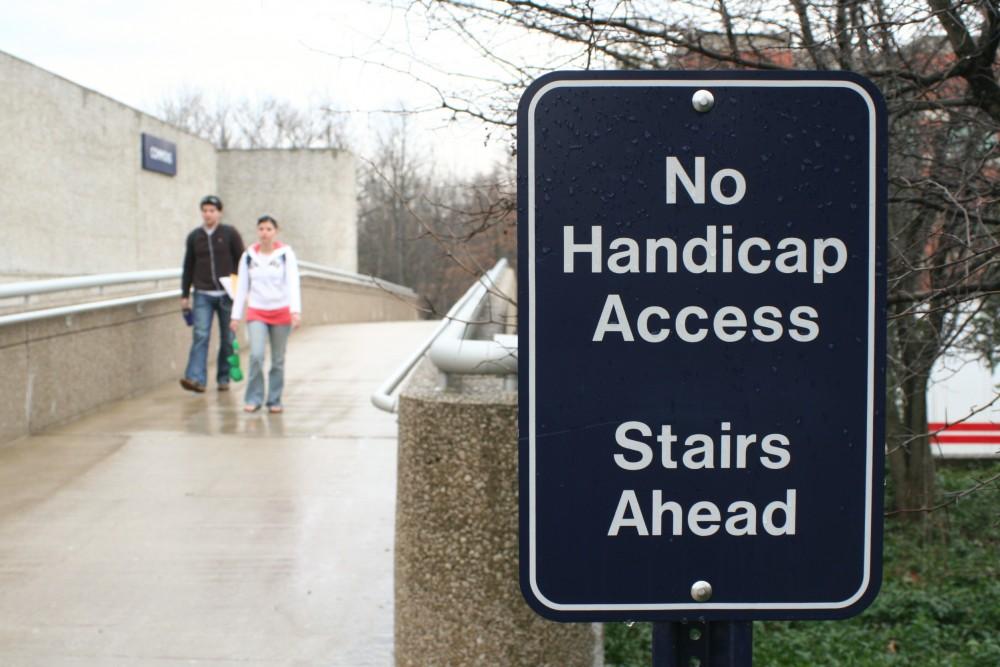Celebrating individuals with disabilities

GVL Archive / Aaron Rademacher Stairs are a common obstacle for students and staff with physical handicaps to navigate on the GVSU campus.
Oct 24, 2010
The passage of the Americans with Disabilities Act 20 years ago opened workplaces, educational institutions and other public entities for equal rights.
Grand Valley Disability Advocates, a student organization that formed last year, celebrated its first Disability Advocacy Month this October with the campus department Disability Support Services.
“The month gives an opportunity for offices like mine and advocacy groups to bring to light different information about disabilities so people can be more cognizant about disabilities,” said Director of DSS Kathleen VanderVeen.
For a physical or mental impairment to qualify as a disability, it must affect a major life function, such as walking, learning, seeing or talking.
VanderVeen said about 80 percent of students who use DSS have a hidden disability, such as a learning disability or ADHD.
“Attention is a major life function,” VanderVeen added. “It qualifies because it affects the way a person learns.”
Tiffany Korican, president of the GVDA, has a hidden visual disability. After six corrective eye surgeries, she still has difficulty seeing from the back of classrooms. She sits at the front and sometimes asks professors to help her with notes.
Korican said she has not had any problems with GVSU professors. She has not had to use DSS to advocate for her visual disability – professors readily accommodate.
But she was not so lucky in high school. After her most recent eye surgery, a high school teacher refused to give her an extension on a paper, which was due the day after the surgery, Korican said. She could not see the computer to type.
To prevent these kinds of miscommunications, DSS also provides faculty and staff training sessions.
“Professors need to recognize some students have trouble keeping up with the fast pace of learning in college,” Korican said.
VanderVeen said faculty members are introduced to DSS at their orientations. Faculty members learn the laws and regulations of the support services.
“They are pretty well-informed of what is expected of them,” VanderVeen said.
Not only have GVSU faculty participated during October, but so have the student groups. Members of Delta Zeta stood under the Clock Tower on Oct. 18 catching students between classes to teach them how to sign their names and simple phrases in American Sign Language.
By teaching students a bit of ASL, members of the sorority said they wanted to raise awareness for the hearing-impaired, Delta Zeta’s national philanthropy.
“Sign language is the third most common language,” said Emily Larson, vice president of programming for the sorority. “But we feel the hearing-impaired are often an after-thought.”
Early in the month, the GVDA members passed out candy secured to facts about disabilities – one in five individuals have disabilities.
While GVSU does not see many hate crimes on campus, VanderVeen said at times discrimination can be involuntary. Advocacy and education is a good way to combat unconscious prejudice, she said.
“If there is something that is inadvertently discriminatory, bringing things to people’s attention is how things will change,” she said.























